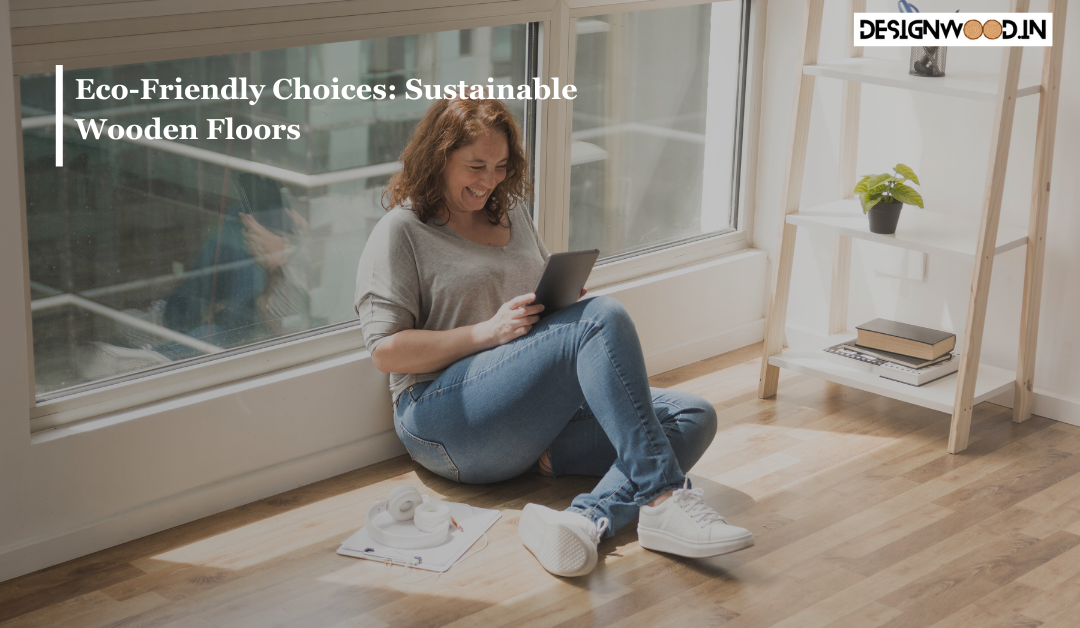Wooden flooring is a timeless choice that adds warmth and elegance to any space. However, in today’s environmentally conscious world, many homeowners are seeking eco-friendly options that minimize their impact on the planet. Fortunately, there are several sustainable choices available when it comes to wooden floors, allowing you to enjoy the beauty of wood without compromising on your environmental values.
Understanding Sustainability in Wooden Flooring
Before delving into the various eco-friendly options for wooden flooring, it’s essential to understand what sustainability means in this context. Sustainable wooden flooring refers to products and practices that minimize environmental impact throughout their lifecycle, from sourcing raw materials to manufacturing, installation, and disposal.
Sourcing Responsible Materials
One of the key factors in choosing sustainable wooden flooring is ensuring that the wood is sourced from responsibly managed forests. Look for certifications such as Forest Stewardship Council (FSC) or Programme for the Endorsement of Forest Certification (PEFC), which indicate that the wood comes from forests that are managed in an environmentally and socially responsible manner. These certifications ensure that forests are harvested sustainably, wildlife habitats are protected, and indigenous rights are respected.
Reclaimed and Recycled Wood Flooring
Reclaimed wood flooring is another eco-friendly option that is gaining popularity among environmentally-conscious homeowners. This type of flooring is made from wood salvaged from old buildings, barns, warehouses, and other structures slated for demolition. By giving new life to old wood, reclaimed flooring helps to reduce the demand for virgin timber and minimize waste. Additionally, reclaimed wood often boasts unique character and history, adding charm and personality to your space.
Certified Sustainable Bamboo Flooring
Bamboo flooring is often touted as a sustainable alternative to traditional hardwood flooring. Bamboo is a rapidly renewable resource that grows much faster than hardwood trees, making it an environmentally friendly choice. However, it’s essential to ensure that the bamboo flooring you choose is certified by reputable organizations such as the FSC or the Sustainable Forestry Initiative (SFI) to guarantee responsible sourcing and manufacturing practices.
Cork Flooring: Renewable and Resilient
Cork flooring is another eco-friendly option that is gaining popularity for its sustainability and durability. Cork is harvested from the bark of cork oak trees, which can be harvested without harming the tree, making it a renewable resource. Additionally, cork flooring is naturally resistant to mold, mildew, and pests, making it an ideal choice for allergy sufferers and those seeking a low-maintenance flooring option.
Low-VOC Finishes and Adhesives
In addition to choosing sustainable materials, it’s essential to consider the finishes and adhesives used in the installation of wooden flooring. Many conventional finishes and adhesives contain volatile organic compounds (VOCs), which can off-gas harmful chemicals into the air, contributing to indoor air pollution and negatively impacting indoor air quality. Opting for low-VOC or zero-VOC finishes and adhesives can help minimize your exposure to harmful chemicals and create a healthier indoor environment for you and your family.
Conclusion
In conclusion, sustainable wooden flooring offers a variety of eco-friendly options for homeowners who want to minimize their environmental footprint without sacrificing style or quality. Whether you choose responsibly sourced hardwood, reclaimed wood, bamboo, cork, or low-VOC finishes and adhesives, there are plenty of ways to create a beautiful and sustainable space that reflects your commitment to the planet. By making informed choices and prioritizing sustainability, you can enjoy the timeless beauty of wooden flooring while preserving natural resources for future generations.





